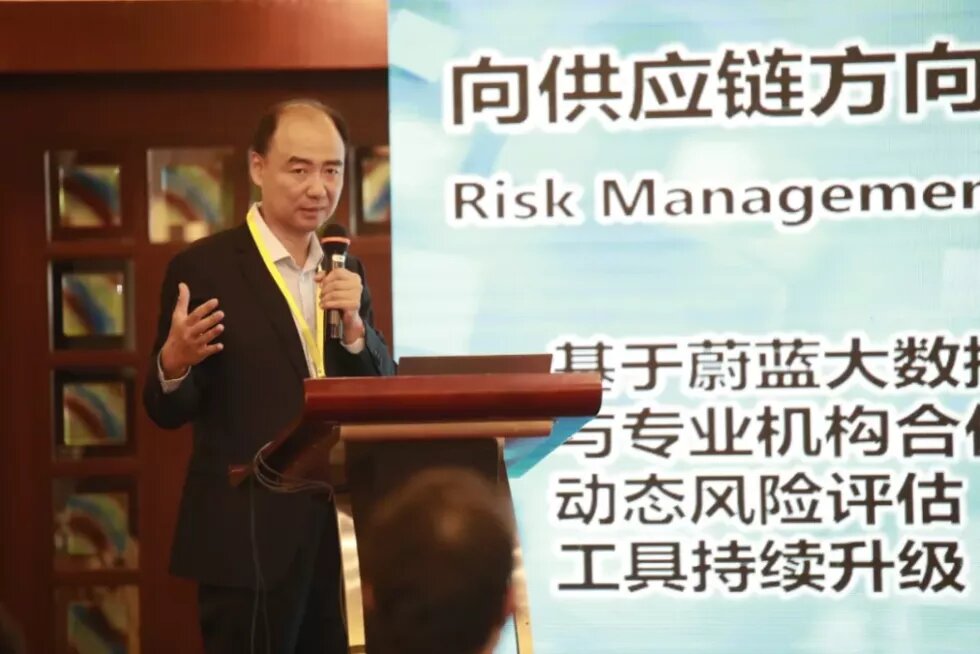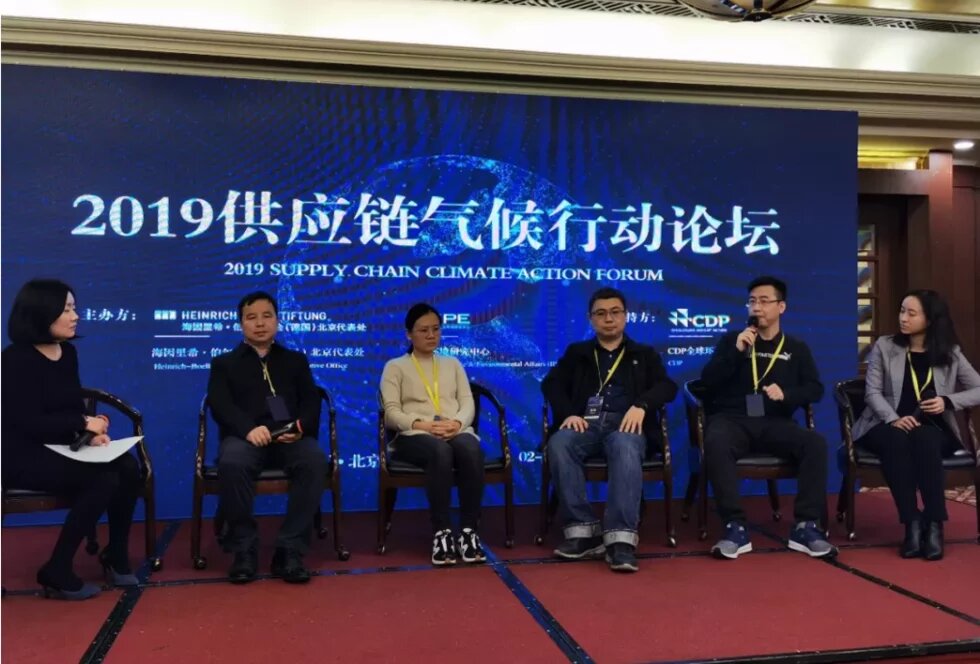

The Institute of Public and Environment Affairs (IPE), supported by the Beijing Representative Office of the Heinrich Böll Stiftung (hbs) hosted their second Supply Chain Climate Action Forum and Supply Chain Transparency Index (SCTI) Conference on December 2, 2019. The conference drew attendance from government representatives, NGOs, and many national and multinational companies to learn about new national policies, share best practices and research results, and explore innovative solutions for supply chain emissions reductions.
In his welcoming remarks, the Chief Representative of HBS Beijing Office, Dr. Paul Kohlenberg, referred to recently published academic research showing how – at current speed of global warming – many coastal areas of the world will soon be at extreme risk of flooding. He stressed that new incentives are needed for companies to include emission reduction requirements in their supplier procurement standards and SCTI offers a very good pathway to achieve the goals.
At the forum, Mr. Ma Jun, the Founding Director of IPE explained that “facing economic downturns, trade war and US’ withdrawal from the Paris Agreement, international actions have been confronted with severe challenges with significant uncertainties. To achieve the goal of 2℃ to 1.5℃, a new path must be found and market-oriented solutions that can balance development and climate goals are particularly important.”
Dr. Tian Danyu, researcher from National Center for Climate Change Strategy and International Cooperation (NCSC), made a presentation regarding the regime of climate change information disclosure. She pointed out that the establishment of an information disclosure regime is not only a compliance requirement but also in line with the government’s reform orientation of simplified administration and decentralization. These measures will be conducive to promoting broader participation of the private sector and the public in addressing climate change.
The SCTI Index Evaluation Report 2019 found that:
- Climate change is taken more seriously at the headquarters of most brands;
- Yet, there remains a gap between these brands’ emission reduction targets and their actual implementation;
- The suppliers of brands in Greater China are still far behind their international counterparts when it comes to concrete climate action.
In line with the objectives of the Paris Agreement, it was suggested that Chinese and overseas business communities should focus on innovative solutions in their supply chains to reduce emission - especially with regard to procurement, investment and financing.